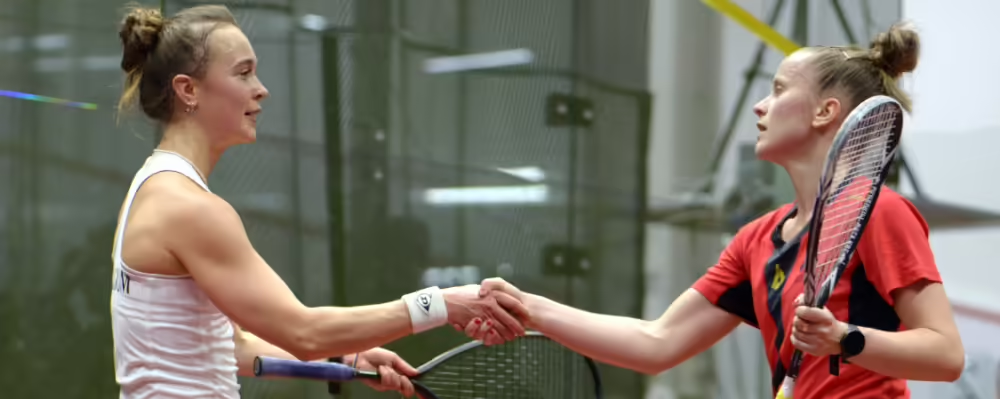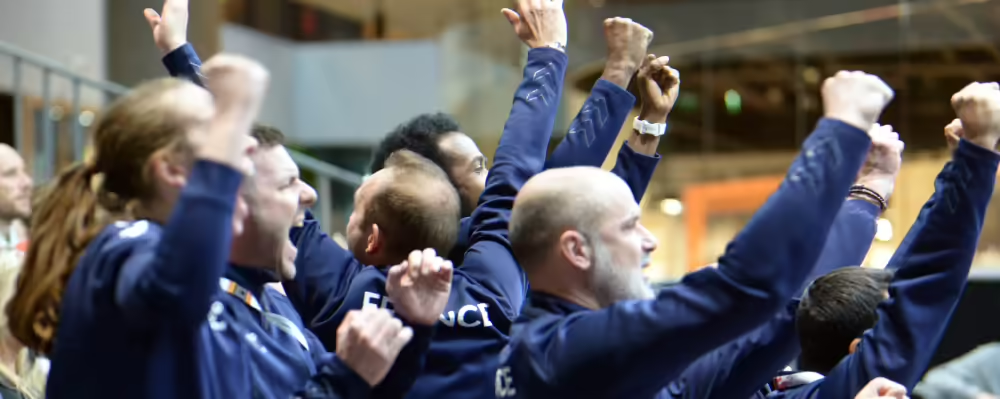28 December 2023 / 4-Min Read / Translate
I've written an introduction to squash etiquette , but I feel it's time to share some more thoughts regarding squash etiquette.
Like all sports, squash has a clearly and constantly reviewed set of rules. And each sport also has its own set on unwritten rules - things that everybody does because it is the right or polite thing to do.
As you know, etiquette means how you behave and in sports the line between what is considered polite behaviour and mind games can be a fine one. In my previous article, I talked about the clothes you wear, how you choose who serves first, bumping into each other, the knock up and finally using the right ball. In this article, I'd like to look at some less common aspects that players should consider.

The time allowed between points is finite, yet very important. Players who have won the point generally want to serve as quickly as possible to maintain their momentum. Players who have lost the point generally want to take a few moments to compose themselves. It's a mini-battle and sometimes has an important psychological effect. I recently performed a video analysis for somebody where they lost 6 points in a row purely to being rushed by their opponent. It was very subtle, but also clear that the player was not quite ready.
Never let a server rush you, but never delay the start of the next point unnecessarily. Take your time to ensure that you are physically and mentally ready for the rally. If you are serving, by all means try to keep your momentum going, but not at the cost of unfairly rushing your opponent.
Now is a good time to quickly mention that if you have any pre-serve rituals, bouncing the ball in a particular way, please make sure that it's fair.
Squash is definitely an emotional sport. You are sharing the court with your opponent and are in close contact with them. Comparisons with boxing and gladiators are constantly made. After winning a particularly tough rally it's natural to want to express your joy or in the case of losing said rally to express your frustration. I'm certainly not suggesting you aim to maintain your Stiff Upper Lip at all times, but ensure that you moderate your fist pumping or frustration release.

Let me be blunt. Being nice to a referee can bring rewards. I've been in matches where the referee has made some terrible decisions. It's incredibly frustrating to be on the receiving end of bad calls, but at the end of the day if you are playing in an amateur tournament or competition, the referees are just players like you, doing their best. As much as you may want to insult or criticise a call, often times the best thing to do is accept it and move on.
As a side note, I feel that player to referee communication during matches needs to be discussed more. Referees who automatically shut down any discussion can cause more issues than they solve - but that's for another article.
In the heat of battle, we sometimes make questionable choices. But one thing we should never do is cheat. If you know your shot was a double bounce, then call it. However, part of me feels that this is unfair because if I know a ball is good, but the ref calls it down, they don't believe me when I say it was up. So perhaps it's better for everybody to let the ref make all the calls.
That said, if you are 100% sure your shot was not good, tell the ref. We use sport to promote fairness and integrity among young players and how can we do that if we don't teach them to be honest and fair at all times?
I always taught my pupils to say "Thank you" at the end of matches, whether they won or lost. It used to be common to say "well played", but that only seems appropriate if they really did play well, otherwise it feels insincere. "Thank you" is neutral and noncommittal while feeling respectful. I still recommend shaking hands with your opponent, but the "handshake skeptic" in me feels that the traditional handshake is antiquated, a vestige of the past that no longer serves a meaningful purpose in our modern interactions. Call me the grinch if you want to.
How you behave on court is a reflection of you, your coaches and the sport. It is possible to be a very meek and quite person off the court and a fist-pumping, no-mercy-giving tiger on court, but that doesn't mean you can't be polite at all times. The "fire in your belly" should be about your squash, not your behaviour.
Don't play mind games with your opponent or referee. Be fair, be honest and show integrity at all times. Be the kind of person other people admire.